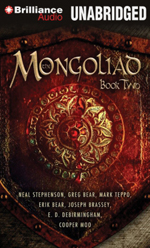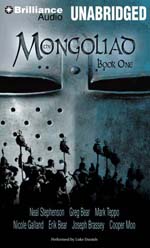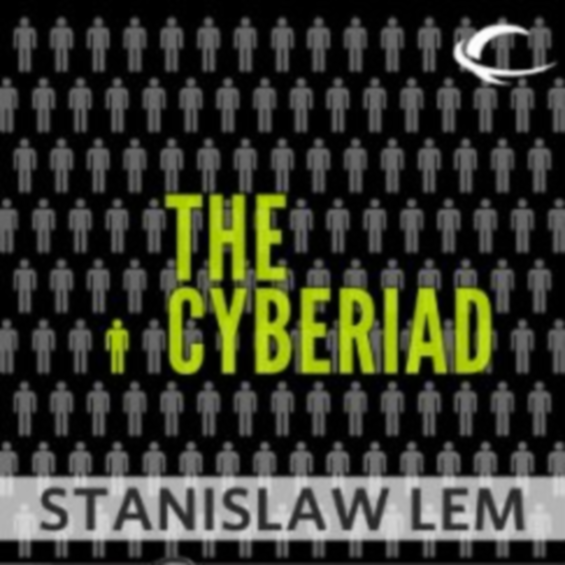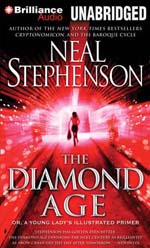
 The Mongoliad Book Two
The Mongoliad Book Two
By Greg Bear, Neal Stephenson, Erik Bear, Mark Teppo, Joseph Brassey, Cooper Moo, and Nicole Galland; Narrated by Luke Daniels
Publisher: Brilliance Audio
Length: 12.5 hours
Themes: / mongoliad / martial arts / fantasy / monks / conquests / Mongols /
Publisher summary:
In the aftermath of the Mongolian invasion of 1241, beleaguered Christians struggle with the presence of a violent horde and a world turned upside down. Apocalyptic fever sweeps through Europe, infecting even the most rational individuals, leaving all to wonder if they are seeing the end times — or an hour when new heroes will emerge from the ruins of cataclysmic defeat. An order of warrior monks, the Shield-Brethren, refuses to yield, plotting to overthrow the invaders despite insurmountable odds. Father Rodrigo Bendrito receives a prophecy from God and believes it’s his mission to deliver the message to Rome. Along with the hunter Ferenc, orphan Ocyrhoe, healer Raphael, and alchemist Yasper, Rodrigo sets out to reclaim Europe. But to save Christendom, someone must slay the fierce Khan of Khans. Brimming with intrigue and colorful characters, The Mongoliad: Book Two is a riveting, expertly rendered tale about the will to survive.
Much like The Mongoliad: Book One, The Mongoliad: Book Two tells a myriad of parallel stories, all centered around the Mongol conquests in medieval Europe. There isn’t much that I can say about this book, Book Two, that I didn’t say in my review of Book One.
This book continues most of the plot lines opened in Book One, and adds a couple more. I suppose/suspect that each different author wrote a different parallel story. I’m not sure that a book that is the overall length of the trilogy (the first two books are about 13 hours long each, the third is about 22 hours long) really needs as many parallel stories as the books seem to have–and that’s before I’ve started Book Three, which may add more stories. It’s like reading a story with as many parallel plot lines as The Wheel of Time series or the A Song of Ice and Fire series but with a fraction of the total page count. This makes it confusing to keep track of story progress (overall) and each of the characters. This is also made more confusing by the odd names used. As I wrote in my review of Book One, I suspect that this would be easier to read in print, or at least with a wiki of a cast of characters. I’m amazed that I can’t seem to find one online.
As with Book One, the book didn’t come to any conclusion, it just ended. At least this one didn’t end in the middle of a heated battle. Oddly, Book Two didn’t pick up exactly where Book One left off. This book started with a new plot line, one with a warrior traveling with a severely injured priest to Rome. I spent a good amount of time when I started Book Two listening and re-listening to the first part; I was trying to jog my memory to remember the plot line from Book One. It took me awhile to realize that the story was brand new for Book Two. The story lines so far seem to be:
– The brother knights on their quest to defeat Ogedai (spelling?) Kahn; they have sustained some losses but also have picked up a few extra travelers in their party, including a warrior woman. They also have a brother with them who has visions; he had one in Book One which we saw the outcome of in Book Two. He had another vision in Book Two, which I expect we’ll see the resolution of in Book One.
– The remaining brother knights trying to distract the Kahn’s brother and his traveling circus of fighters; these guys seem to be trying to form a rebellion from within the circus. Andreas is helping to lead this rebellion with the two most prevalent Mongol fighters in the circus.
– Ogedai Kahn’s point of view, where he is now under attack by the Chinese.
– GonSuk, an adviser/guard to Ogedai Kahn (as well as some of his fellow advisers/guards who are with and without him).
– The Levonian (spelling?) knights, who seem to be out to try to re-gain status in the world. They seem to be in conflict with the Rose Knights (the brother knights on the quest). Their role is not exactly clear yet, but it seems that they have ties to the church. This was a new story line for Book Two.
– The cardinals in Rome who are split into two factions for the election of the next Pope. This was a new story line for Book Two and it’s not exactly clear the differences between the factions.
– A wandering warrior and a young warrior girl (one similar to the warrior woman with the Rose Knights, though this young girl is still in training), who have been sent on a quest by one of the cardinals; the cardinal who gave them the quest to pass a message was killed. This was also a new story line for Book Two.
As much of a downer as this review seems, I’m still intrigued. I don’t get it, as this defies most of my typical “rules” for books. This time, I’m going to move right into Book Three, instead of reading a few books in between. Book Three is almost twice as long as Book One or Book Two. I enjoy this world, even though it seems like there are too many story lines and too much going on…with confusing characters. I do think that this world is better-suited to the prequels and the “Side Quest” books. I’ve already read two of the prequels (and have the other one, Seer: A Prequel to the Mongoliad, ready to read), and have three of the Side Quests ready to read once I’m done with the main story. Stay tuned for my review of Book Three, which will include an overall review of the main story line of the “series.”
Posted by terpkristin.
 The Mongoliad: Book One (Foreworld Saga #1)
The Mongoliad: Book One (Foreworld Saga #1)




